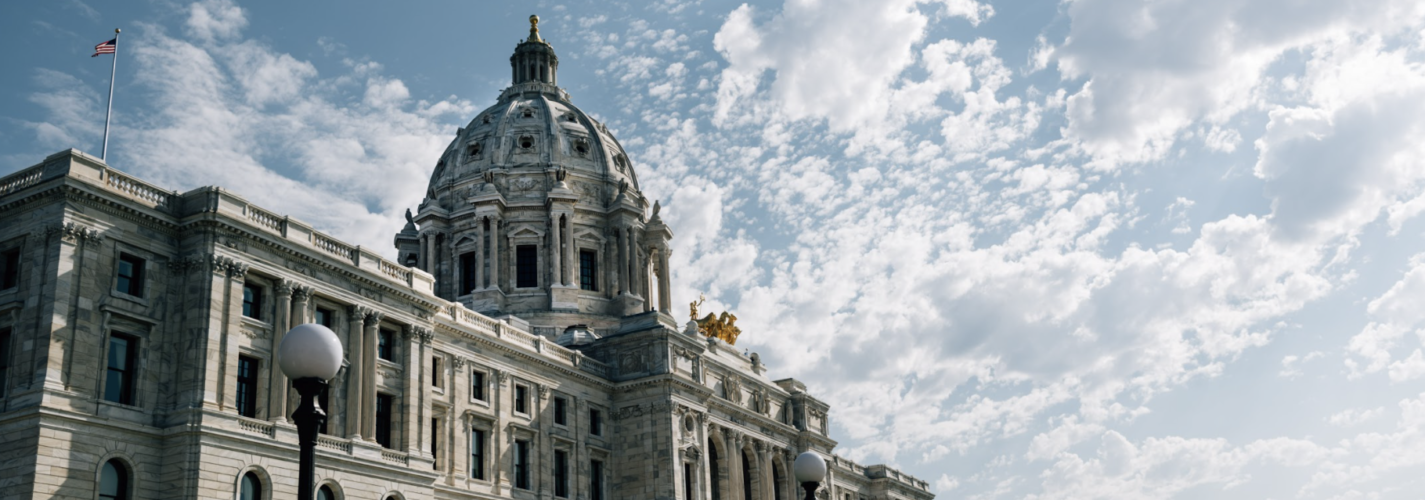2021 Legislative Session: Seven Issues We’re Working on for MN Kids
By Josh Crosson
This legislative session, the stakes couldn’t be higher for Minnesota students, who have faced unprecedented disruption in their education. The barriers facing students are more apparent than ever before and will be a key topic at the Capitol this year. I’m eager to share EdAllies’ priorities for the 2021 session, and some insights into some key education policy debates we expect to unfold.
Student Needs in the Wake of COVID-19
Unless we act, the outcomes of school closures will have lifelong impacts, especially for low-income learners, students of color, English Learners, and students with disabilities. From inequitable access to technology to mental health challenges to overall learning loss, Minnesota students need robust supports. During the 2021 session, we’ll advocate for systems to assess and address student learning needs and measure progress toward recovery. And we’ll work to close the digital divide so all students can fully participate in a 21st-century system for learning.
Keep Doors Open to High-Quality Teachers
After years of debate, compromise, and rulemaking, Minnesota finally has a streamlined tiered teacher licensure system in place. Despite promising signs that the system is helping teachers from diverse backgrounds enter classrooms that need them, we expect the ongoing debate over proposals that would limit pathways to enter and grow in the profession. We’ll work to ensure that schools can hire and retain the best teachers to meet the needs of their students, ensuring Minnesota does not close pathways for experienced educators—and instead, works to help proven and diverse educators become better in the profession.
Increase Access to Rigorous Coursework
This fall, EdAllies released a new report with recommendations to increase participation and address disparities in access to advanced coursework—like AP, concurrent enrollment, and PSEO— that can help ensure all Minnesota students graduate high school ready to succeed in college and career. This session, we’ll work with policymakers to turn these recommendations into reality, first and foremost by following the lead of other states who have recently adopted policies that automatically opt students into rigorous coursework, and also by expanding college and career readiness measures in World’s Best Workforce.
Recruit & Retain Teachers in Shortage Areas
Minnesota continues to face shortages in critical fields like special education—and perhaps most notably, for teachers of color—making investments in proven preparation programs that move the needle in filling shortage areas a necessity. Moreover, despite research emphasizing the importance of teacher diversity for student success, especially for students of color and Indigenous students, most local layoff policies require schools to lay off our least senior, often more diverse educators first, regardless of their impact. During this session, we’ll work to ensure Minnesota requires schools to prioritize teachers of color and teachers in shortage areas in times of layoffs and increase access to high-quality alternative teacher preparation programs.
Ensure High-Quality Charter Schools
Regardless of income, race, or zip code, every family deserves access to a high-quality school that meets their child’s needs. The state must ensure this is an equitable choice by removing barriers that limit options for low-income families, while also holding charter schools to high-performance standards. To help charter schools—which policymakers designed to have greater flexibility in exchange for stronger accountability to student achievement—meet the needs of their students, we’re calling on state leaders to provide a framework to ensure they deliver strong results, including opposing blunt, quality-blind policies like charter moratoriums that restrict student options and advancing stronger accountability of charter school authorizers.
Protect Equitable Funding
As policymakers seek to address education funding and potential shortfalls, they should guarantee that all students, especially students from underserved communities, have the resources they need to thrive. In 2021, we’ll call for targeted investments that ensures student needs are a top priority for the coming biennium, avoiding cuts that would harm vulnerable and historically underserved students—including necessary funding for students with disabilities regardless of whether they attend a district or charter school, ensuring access to high-quality early learning for low-income families, and prioritizing funding for Minnesota’s low-income communities.
Discipline Approaches That Keep Kids in School
We must invest in discipline strategies to improve educator, student, and family relationships, improve student behavior in the long-term, and keep students in school and engaged and safe. Programs like restorative practices and Positive Behavioral Interventions and Supports (PBIS) are proven alternatives to exclusionary practices. Suspensions and expulsions—which are ineffective and unfairly target students of color and students with disabilities—should only be used as a last resort. This session, we’ll advocate for policy that requires schools to work with parents during disciplinary actions and gives parents access to a state-level complaint center for improper discipline practices.
What You Can Do
All of this work will happen in the context of remote hearings, a budget deficit, and a polarized political landscape. To learn more about the political context and how we plan to advance the work, you can join us on Friday, January 15 for our session kick-off webinar.
As session picks up, we’ll need advocates like you ready to take action. We’ve heard your calls for more inside information, and thanks to our growing team, we aim to keep you more up-to-date than ever. Over the next few months, we’ll use social media and email to share opportunities to act on emerging policy proposals, so stay tuned!

